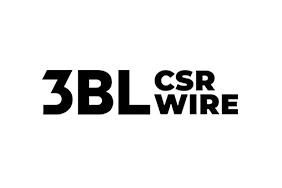Can Shell Oil Reset its Business Model?
Published 07-15-09
Submitted by CSRwire
July 15, 2009 -
Shell Oil tries community engagement in U.S. wind projects amid criticism of its impacts on communities in the Niger delta.
Poor Shell Oil. It's been under relentless attack recently for wreaking havoc on the environment, livelihoods and human rights in the Niger delta. Last week, it paid $15.5 million to settle a suit alleging its complicity in the execution of human rights activist, Ken Saro-Wiwa.
Amnesty International released a report on June 30 alleging Shell has brought poverty and pollution to the Niger Delta. The organization charged the company with exploiting Nigeria's weak regulatory framework to cause widespread environmental devastation, encourage serious human rights abuses, and damage local economies by destroying the resources on which they depend.
The report caused Shell to scramble to its own defense. While the company did acknowledge that "the people of the Niger Delta have not benefited from the extraction of oil and gas as they should," it said it's own role was limited in causing the problem, blaming violence by militants and official corruption.
Another report, released by Friends of the Earth-Europe zeroed in on Shell's contribution to climate change by continuing to invest in fossil fuels. It also cited Shell's practice of gas flaring in the Niger delta, charging the company was long aware the practice releases significant carbon emissions, but decided to continue it for financial reasons.
In June, Shell settled a suit brought against them by relatives of the human rights activist and writer Ken Saro-Wiwa, who was executed by the Nigerian government for his work on behalf of the people the of Niger delta. Shell did not accept responsibility for the Saro-Wiwa's death, but described its settlement as a "humanitarian gesture."
But is Shell all bad? It is involved in eleven wind projects in North America and Europe that produce a total of around 1,100 megawatts. With Shell's share in the projects at 50%, the company says it saves around one million tons of CO2 emissions a year compared to what coal-fired plants would release.
And possibly, Shell has learned something from its mistakes in the Niger delta. The company hired Business for Social Responsibility to develop a community engagement strategy in several of its wind projects in the United States.
The strategy identified stakeholders impacted by the projects, including community leaders, NGOs, government officials, and local residents. Meetings between stakeholders and the company clarified community concerns that Shell is moving to address.
It’s part of a "best practices" model BSR outlines in its newly released annual report, which it calls a "road map for sustainable business to navigate a trio of crises: the sharp global recession, increasing evidence of natural resource constraints, and the loss of trust in the private sector."
The report, called "Meeting the Challenge of a Reset World," (and a conference on the same theme to be held by BSR in October says companies have to leave the path of business as usual to concentrate on developing strategies based on long term trends, finding system-changing solutions to problems, and working together with government.
All these continue to be issues for Shell. Its commitment to renewable energy has faltered: in April 2009, Shell announced it is ditching further investments in wind, as well as in solar and hydro-power. The company claimed that, due to the current recession, renewables don't present "attractive investment opportunities" - evidence of the kind of short-term thinking BSR says companies need to shake. Shell also said it was leery of wind energy development's need for government subsidies.
Instead Shell will concentrate future investments on carbon capture and storage and biofuels that "do not use food-based crops and are less harmful to the environment," both infant technologies that may take many years to prove whether they are indeed sustainable. For example, unlike wind and solar, algae ethanol is produced using fossil fuels and releases CO2 once its burned.
BSR's report and its upcoming conference, "Reset Economy. Reset World," poses "rebuilding trust" as a key part of sustainable business strategy-especially in a time of economic, as well as environmental crisis. To do that, Shell Oil may have to "reset" it's own priorities.

CSRwire
CSRwire
Trusted since 1999, 3BL CSRwire is a dedicated, real-time source for major news and updates pertaining to corporate social responsibility and sustainability. CSRwire is part of the 3BL network.
Explore the latest news below.
More from CSRwire

